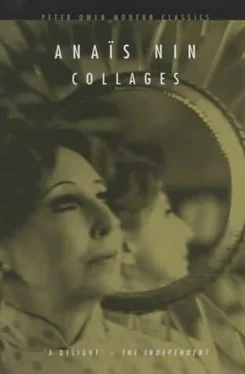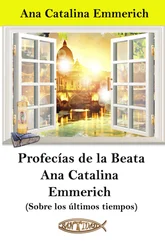She had to buy a huge cage. But she was happy. She felt she had fulfilled a long dream, she felt complete in herself. In the raven lay some mute, unflying part of herself which would now become visible, audible and in flight. His wings, so wide open and powerful, became her wings. His blackness became her blackness. And the child in Raven who had been too gentle, too docile, now felt liberated of this meek image, felt that the raven had become a part of her she wanted to express, a stronger, darker, more independent self. His irony, his mockery, his fierceness suited her. They were extensions of a Raven who might have otherwise become selfless, self-effacing. So Raven sat on the red couch, and her raven wandered through the room, the raven of legends, ravenous, ravishing, raper, rapacious. But Raven loved him in all his moods.
His black feathers full of dark blue luster, his eyes so sharp, his claws curling twice around the bars of his cage, he stared at Renate who was staring at him, a black rayless stare.
Raven loosened the chain. Renate expected him to perch on Raven’s hair or shoulders. She wanted to see hair and wings entangled. But Raven and the bird displayed no intimacy. He pecked with his long beak at Raven’s toes. His hoarse vague sounds, like a man clearing his throat after smoking, filled the room as he flew from his perch with the speed of wind.
The young men who visited Raven considered the bird a menace, a challenge, a rival, a test of their courage, of their masculinity. They could not court her, dream of her, in front of him. They wanted to provoke him and drive him away, as if in some obscure way he guarded Raven from intimacy with them. He was an obstacle, an alien part of her, ruling a realm they did not want to know. He stared at their eyes as if meditating an attack.
Raven controlled him like a lion tamer, shook a folded newspaper to drive him back into his cage, but Renate could see she enjoyed his angry retreats.
Raven said: “After I tamed him, I let him run free in the apartment. I wanted to know if he really loved me, if he would stay with me. So I opened the window and he flew out to the roof of the house next door. He explored the gutters, pecked at some stray leaves, and flew back to me. From then on I knew I was as necessary to him as he was to me.”
The raven trod gingerly between delicate furniture, vases, statuettes and brocades. But when he spread his wings and shook them, tremulous with rhythm and vibrations, one could hear the wind from the mountains where ravens like to live, and one marveled that he submitted to captivity.
How intently he looked at Raven, her hair and eyebrows matching his wings but seeming blacker by contrast with her moonlit skin.
Posing for Renate, Raven contemplated her painting of Our Lady of the Beast. In the late afternoon light a luminous naked woman reclines beside a panther. The face of the panther shines, more brightly with a phosphorescent light. They are the Beauty and the Beast after a long marriage, both equally beautiful. But later, when it grew dark, it was the face and body of the woman which began to shine with a gold phosphorescence and the panther grew darker and more shadowy. It disappeared finally into the night, leaving on the black canvas only the stare of its golden eyes. They had exchanged souls.
Renate painted Raven standing nude in front of a mirror. Her back was covered with her abundant, undulating black hair. Her reflection in the mirror was smaller, the skin a shade paler, her eyebrows and eyelashes touched with coal dust. The raven was pecking at the hem of her lace scarf, with his wings closed as if the girl had become more powerful than the raven. The quality of night, mystery and hidden violence had been absorbed by her.
And the raven, sitting at her feet with folded wings, had he absorbed her timidity?
WHILE DRIVING ALONG PACIFIC PALISADES, Renate had stopped several times to offer a lift to an old man with his arm in a sling. He was going to get his arm treated nearby and, very slowly, he unraveled his story to her.
He lived in Malibu, the place by the sea which the Indians called the Humped Mountain, and which in French, if you sang it, sounded like Evil Owl —Mal Hibou ,Malibu.
When he was a young man he became a lifeguard at Will Rogers’ beach. He sat on a chair twelve feet high and studied the moods of the sea. He had no need of weather bureaus. He knew by every undulation, every contortion, every flourish and flounce of the waves, the sea’s exact mood and whether it would be treacherous for the swimmers, or tender and mocking. He knew the omens of the clouds, read the future in their colors and density. He knew the topography of the sand covered by the sea as if he had mapped its depths. From where he sat the cries of the gulls, of children and bathers all fused together and made a sound he liked, musique concrete. He had never been concerned with words.
He knew the entire coast, from Will Rogers’ beach to where Malibu became wild and solitary.
He married and had children, but he was restless in the house. The static walls irked him. He did not like the smell of enclosure, of cooking, of wax, nor the sound of the vacuum cleaner. He missed the wind’s flurries, and the spicy smells of the seashore.
He felt entombed by the stillness of objects, the unchanging landscapes in frames. And the torrent of words spoken by his wife and children did not give him the stinging, whipping sense of aliveness he felt at the beach.
He returned to his old job as a lifeguard. But each evening he stayed longer at the beach. He liked it best when it was deserted, and when he would start walking homeward along the coast. He discovered the treasures of the sea which lay in the rock crevices, either thrown there by storms, or growing there. The humid, never-withering sea-lemon, the sea-lilies which did not close at night, the sea-lentils tied to giant serpentine string beans, sea-liquor brine, sea-lyme grass, sea-moss, sea-cucumbers. He never knew the sea had such a lavish garden—sea-plumes, sea-grapes, sea-lace, sea-lungs. In the summer he began to stay on after dark. He learned skin diving and stole crabs and lobsters people trapped. He cooked his dinner on the beach. He came home rarely.
The rocks were continually filled with surprises from shipwrecks, and the nights with sounds which the regular rhythm of the sea orchestrated. The wind flung itself between the rocks, disheveled, wrestled with the waves, until one of them expired. The sky put on its own evanescent spectacles, a pivoting stage, fugitive curtains, decors for ballets, floating icebergs, unrolled bolts of chiffon, gold and pearl necklaces, marabous of oyster white, scarves of Indian saris, flying feathers, shorn lambs, geometric architecture in snows and cotton. His theater was the clouds, where no spectacle repeated itself.
On land he was a foreigner. Land for him was stasis, and it pulled him into immobility, which was his image of death.
One night he slept in one of the caves. He thought to himself: Now I am a merman.
He passed the time detecting mild sea-quakes, he made friends with the sea-lark, he collected sea-palms and made a rug of them for his cave. But some element was missing. The friendship of the sea-gulls was too ephemeral. Their visits were too short. They were always impatient to be off in space.
One night he walked on to the end of a natural rock jetty and came upon a shoal of seals. They swam, dived, clowned, but always crawled back to the rocks to have their young ones there. They kissed, barked, leaped, danced on their partly fused hind limbs. Their black eyes were like mirrors reflecting sea and sky, but the ogival shape of their eyelids gave them an air of compassion, almost as if they would weep with sympathy. Their tails were of little use except for swimming but they liked to shake their webbed flipper-like limbs as if they were about to fly. Their fur shone like onyx, with dark blue shadows under the fins.
Читать дальше












